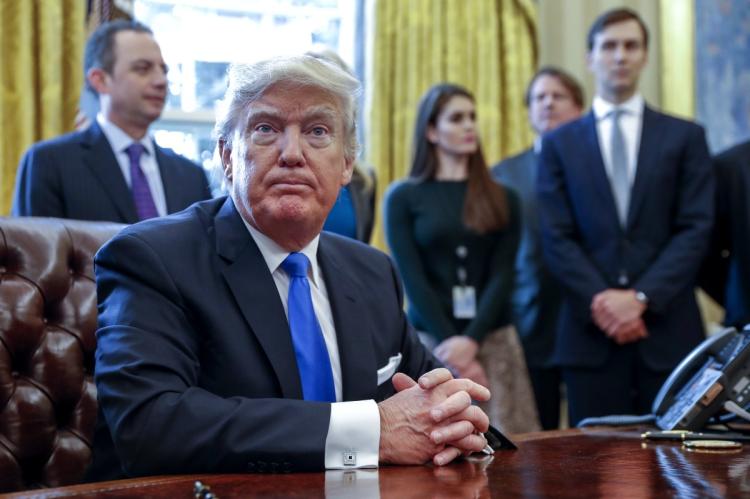According to some officials within the Pentagon, Russia’s recent aggression toward the United States has been a part of an effort to test President Trump’s response to such actions.
In the past few weeks, the Russian military has deployed a new medium-range, nuclear capable ballistic missile in to an undisclosed location, a clear violation of a treaty Russia signed with the United States decades ago. Russian fighter jets also buzzed an American Navy vessel in the Black Sea last week, an action U.S. defense officials have called a “mock bombing run,” and a known spy ship from the Russian Navy’s Northern Fleet has been anchored thirty miles outside of America’s premier East Coast submarine base, Naval Submarine Base New London for days.
While it isn’t unheard of for Russian spy vessels to travel up and down the East Coast of the United States, this recent trip marks the first time in years that such a vessel has traveled further north than Virginia during such an exercise. These varied operations, all seemingly intended to antagonize the United States, have thus far been met with limited official response from Trump’s administration, and according to some sources within the Pentagon, Trump’s response is exactly what Russian President, Vladimir Putin, is attempting to ascertain.
“They were likely intended to test the new administration,” one defense official told CNN.
“The Russians are doing different things to see how the new administration will respond,” a second defense official added.
It is likely that the Russian military would flex its muscle in a similar manner regardless of who won the White House in a recent election, as the Kremlin attempts to ascertain the level of American response they’ll receive from the new administration. Likewise, the first one hundred days of any new presidency is often a hectic time, as new policies are put forth, seats within the administration are filled, and the new president learns the lay of the land. This tumultuous period of time may be Moscow’s best opportunity to execute operations such as the deployment of banned weapon systems while America’s president has to keep his attention primarily on domestic issues and filling his cabinet.
Russia’s aggressive moves “are just the most recent in a long series of Russian military provocations vis-à-vis NATO member states,” said Joerg Forbrig, a Berlin-based expert on Eastern European affairs at the German Marshall Fund.
“That said, the latest posturing is certainly tailored specifically to the United States at its time of transition to a new administration.”
Another likely possibility is that the Kremlin is beginning to recognize that the media climate in the United States will make friendlier relations between the two governments difficult to pursue, as scandals regarding ties between the Trump administration and the Kremlin continue to pop up. With journalists, politicians, and average American citizens beginning to question the nature of the relationships between Trump’s team and the Kremlin, a spotlight will be shined on any agreements established between the two nations.
President Trump believes this to be true, according to a statement he made to journalists on Thursday.
“All of those things that you mentioned are very recent, because probably Putin assumes that he’s not going to be able to make a deal with me because it’s politically not popular for me to make a deal,” Trump said.
Already have an account? Sign In
Two ways to continue to read this article.
Subscribe
$1.99
every 4 weeks
- Unlimited access to all articles
- Support independent journalism
- Ad-free reading experience
Subscribe Now
Recurring Monthly. Cancel Anytime.
It is likely that Russia’s varied operations over the past weeks were planned well in advance, meaning there’s a good chance they would have been executed regardless of the outcome of last November’s election, though they could of course have been postponed or cancelled if the Kremlin deemed it necessary.
Whether the Russian’s are poking Trump’s administration with a stick to gauge its response, are attempting to take advantage of the president’s focus on the issues he faces in-house, or have simply given up hope on improving relations with the United States – it can’t be denied that Vladimir Putin is taking advantage of the political situation in the United States to deliver some military posturing and even to improve his tactical position over potential opponents in Europe.
The only question remaining is, what will Trump do about it?
Image courtesy of Getty Images










COMMENTS